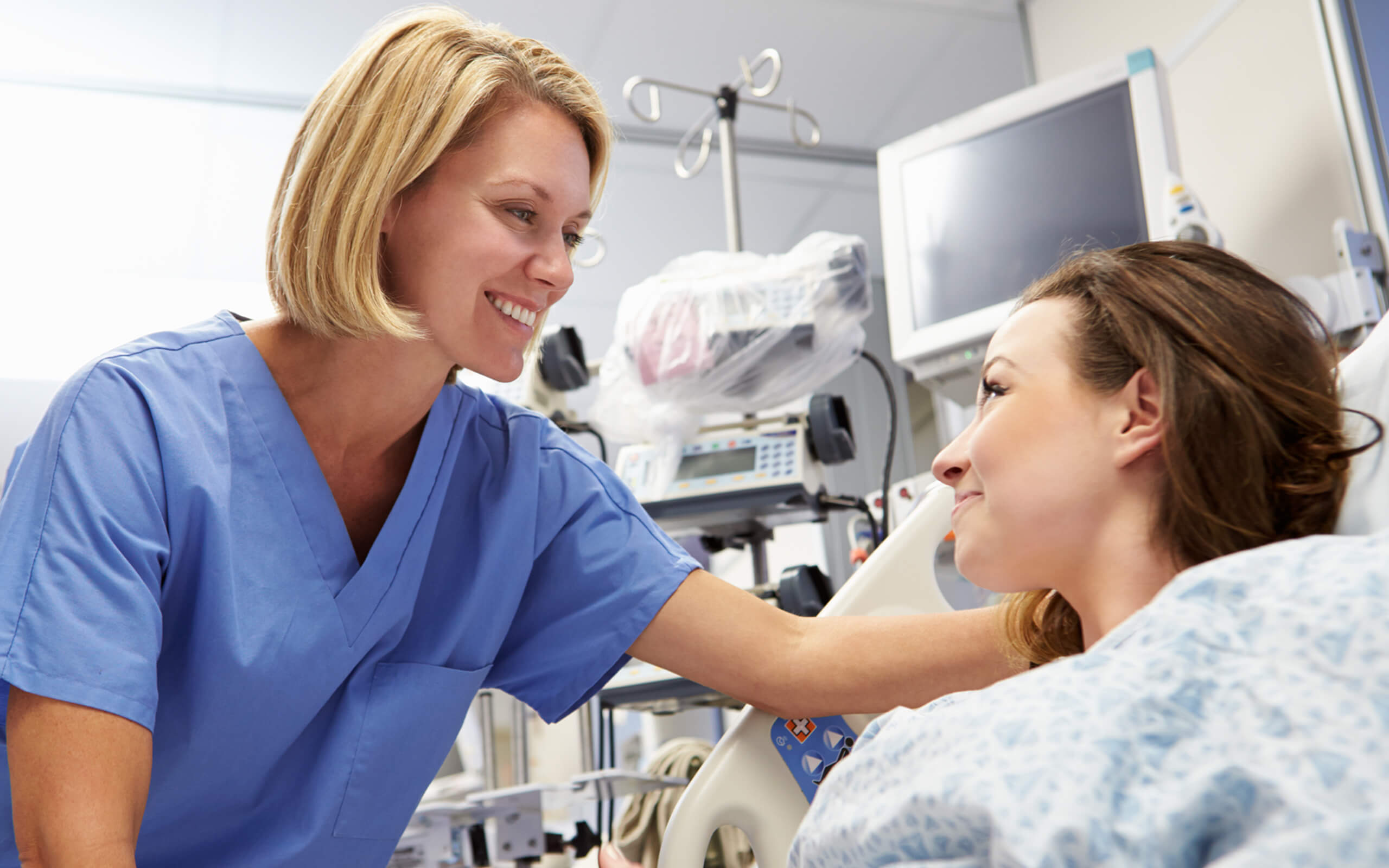Midwifery
Award
MSc
Duration & study mode
3 years full-time
School
Health & Life Sciences
Location
Lanarkshire
Additional information
Course starting dates
-
Lanarkshire: September

This innovative three-year MSc Midwifery course will enable you to become a highly educated midwife with the potential for management, leadership, consultancy, educational and research roles.
You will be given opportunities to embrace new challenges that shape the future of maternity services for women, newborn infants and their families.
You must apply through UCAS for this course as it is classed as an undergraduate Masters course - the UCAS code is B722 (see Apply section below for more details).

Our course is approved by the Nursing and Midwifery Council (NMC). You will be eligible for registration as a registered midwife with the NMC.
On completion of the degree you will enter into the by the Nursing and Midwifery Council (NMC) register and be able to practice as a midwife.
You will study at our new ultra-modern campus in Lanarkshire, which is equipped with the latest innovative and collaborative nursing and midwifery technologies.
The course comprises 50% practice and 50% theory. Practice placements are available throughout the following Health Boards:
There is at least one placement outwith the acute maternity sector in a community midwifery unit.
We welcome Scottish and UK students and consider all applicants on an individual basis.
Don’t worry if your qualifications are not listed here, we take a range of factors into account when assessing your application and are happy to consider other alternative combinations of qualifications and experience.
To be considered for our course, you must:
* for Scottish applicants, SQA Life Skill Mathematics / Application of Mathematics are acceptable alternatives to SQA National 5 Maths, if they have been awarded at National 5 level.
Entry is also dependent on you successfully passing the following:
Further desirable skills pre-application:
All applicants must meet NMC entry requirements as per NMC Standards for pre-registration Midwifery education.
International applicants must satisfy enhanced English Language requirements. See section below - IELTS Score Exceptions - for more information.
For applicants whose first language is not English, the University sets a minimum English Language proficiency level. The qualifications below must have been gained within two years of the start of your course.
General English language requirements at UWS: International English Language Testing System (IELTS) Academic module (not General Training)
Exceptions to this level of IELTS scoring exist for some accredited or professionally-recognised courses (see section below for more details).
SOCIAL WORK DEGREES
For our BA (Hons) Social Work and MSc Social Work programmes, applicants are required to have an IELTS score as follows:
All stated English tests are acceptable for admission for both home/EU and international students for this programme:
For our research degrees (MRes, MPhil, PhD, DBA, DProf) applicants are required to have an IELTS score as follows:
For Health, Nursing & Midwifery courses that lead to, or require professional registration with the Nursing & Midwifery Council, applicants are required to have an IELTS or Occupational English Test (OET)*.
For such courses, the IELTS score is as follows:
* Note that the Occupational English Test (OET) will now be accepted in addition to IELTS as proof of a Nurse's English Language Competence (Nursing & Midwifery Council, 2019).
For our BSc (Hons) Applied Biomedical Science, BSc (Hons) Biomedical Science and MSc Advanced Biomedical Science programmes, applicants are required to have an IELTS score as follows:
For our Certificate of Higher Education courses, applicants are required to have an IELTS score as follows:
TOEFL IBT*: 78; no sub-test less than:
* Please note that TOEFL is still acceptable for admission to this programme for both home/EU and international students.
For international students, the Home Office has confirmed that the University can choose to use TOEFL to make its own assessment of English language ability for visa applications to degree level courses. We therefore still accept TOEFL tests taken in the last two years for admission to this programme.
West African Senior School Certificate of Education (WASSCE) including acceptance of WAEC Scratchcard*
*UWS will accept a WAEC scratchcard confirming that an applicant has achieved C6 or above as evidence of meeting English language requirement from Nigeria if the student graduated within the last 5 years. After 5 years applicants would be required to provide the WAEC Certificate.
Applicants who do not meet the minimum English language requirements have the option to study one of our preparatory and pre-sessional English courses. The UWS courses available are:

Students achieving the minimum threshold award of MSc Midwifery with Registration will be eligible to apply for NMC registration. Graduates are highly sought after nationally and internationally with currently 100% students gaining employment as a Registered Midwife within three months of graduation. The midwifery team work in partnership with students, utilising modern hybrid pedagogical approaches to deliver world-ready graduates who will design, shape and build a new future.
Following graduation, there are a variety of career pathways / opportunities available locally, nationally and internationally. Some become professional midwives. Some move into wider fields of public health, sexual health and family health:
// Midwifery practice in an acute setting
// Midwifery practice in a community setting
// Independent midwifery practice
// Midwifery within the armed forces
// Voluntary service
// Public health / Sexual health
// Management and leadership midwifery roles
// Project management and leadership
// Consultant Midwife
// Education
// Research
// Post-doctoral studies
Upon completion, you will be equipped to consider postdoctoral studies, project management and leadership, postgraduate teaching and learning, and specialist consultant clinical midwifery roles.
If you are ordinarily resident in Scotland, you may be eligible to receive £10,000 worth of funding in each of the three years of your MSc programme, for tuition and living costs. This funding is available through the Paramedic, Nursing and Midwifery student bursary scheme (PNMSB) which comes from the Scottish Government Health Directorate but is administered by the Student Awards Agency Scotland (SAAS).
You can find out more on the webpages below:
£1,820 cost per year of study (usually paid by the Scottish Government via SAAS*)
£9,250 per year of study
£9,250 per year of study
£18,000 per year of study
To apply for this MSc you must apply through UCAS. This conversion MSc is classified as an undergraduate course for the purposes of application/admissions even though you must have at least a Bachelors/undergraduate degree to apply. See below for more details on how to apply including the UCAS code for ths degree.
Find Out More and Apply on UCASAll applicants for this programme should apply through UCAS (Universities and Colleges Admissions Service).
The on-time application deadline for 2024/25 entry is 31 January 2024, 18:00 (UK time). For some courses it may still be possible to apply beyond this period, subject to suitable vacancies remaining. The final deadline for late applications via UCAS is 30 June 2024. Beyond this deadline, you may be able to apply via ‘UCAS Clearing’ if the course you are interested in has remaining places.
UCAS codes for Nursing & Midwifery Master's:
Please refer to our Undergraduate Application Guide for domestic & EU/EEA to find more information on when and how to apply to study at UWS.
Do you have a question about applying for this course? Get in touch. We are here to help!
We will always try to make sure that we publish accurate course information but we do not accept responsibility for any mistakes or omissions. We will also try to make sure that we deliver our courses in line with our published information. However, we may not always be able to do so and you can find further information about this in our enrolment terms and conditions.